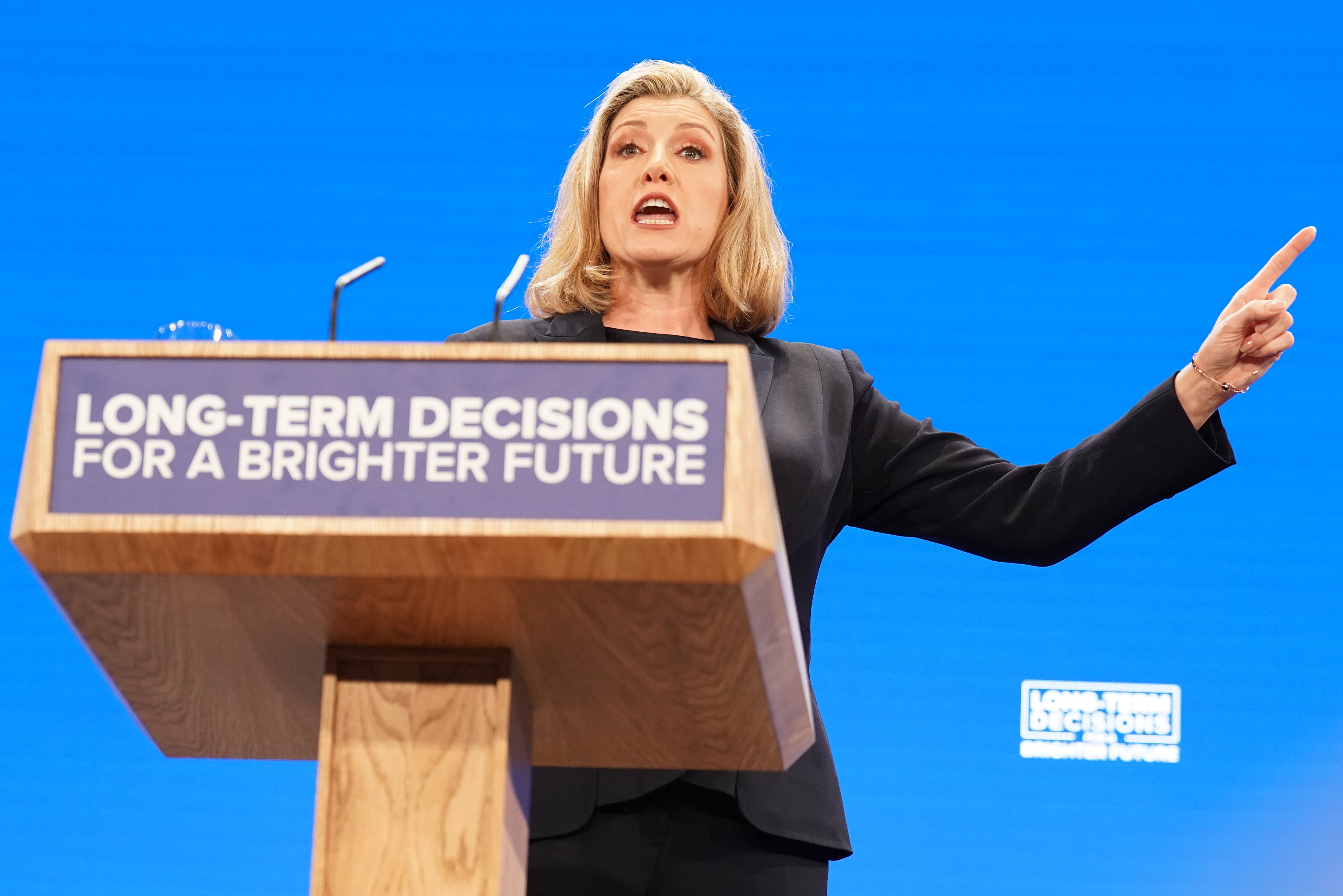Penny Mordaunt has forgotten who got us into this mess
Letters to the editor: our readers share their views. Please send your letters to letters@independent.co.uk

Reading Penny Mordaunt’s recent comments (“The autumn Budget will show if we have our heads in the sand”, Voices, Sunday 18 August), I was struck once again by how the divide in politics is no longer between left and right, but between fantasy and reality.
Mordaunt was a member of a government that prioritised tax cuts that disproportionately favoured the wealthy, and overspent on several failed projects. Her party is responsible for the austerity which gutted public services, hollowed out the country generally and, crucially, choked off the growth that we needed – especially if we did want higher defence spending.
They then gave us a Brexit built on a whole army of rampaging unicorns, which they failed to deliver and only made us poorer. She then was part of an election campaign focused on more tax cuts, that used immigration as a weapon to stir up division and hatred, and gave us a side order of an imaginary £2.5bn a year to be spent on a national service gimmick.
Maybe if she and her colleagues had concentrated more on what the country actually needed over the last 14 years, in reality, then Labour wouldn’t have to focus on the more mundane task of rebuilding the country.
John Murray
Bracknell
Just weird
In her bid to lead the Conservative Party, Kemi Badenoch has described the Liberal Democrats as “incoherent” and “fantasists”, and has said that the Equality Act has “fed a lot of discontent”.
Lest we forget, it was her, as secretary of state for Business and Trade, who continually insisted Brexit was a great success, despite one reputable body after another publishing irrefutable evidence that it was costing us dearly.
Remarks made by other Tory leadership candidates suggest she’s not the only one who is living in a glass house and throwing stones. No wonder there’s little interest in the contest when the candidates are coming across – to repeat a phrase of Kamala Harris’s running mate, Tim Walz – as “just weird”.
Roger Hinds
Surrey
Off the rails
In two years, violence against women and girls on British railways has risen by more than 50 per cent, according to official figures. Sexual harassment reports have doubled.
This emphasises, once again, the need to have guards on trains at all times. There are many, many other reasons for this, including medical emergencies on board, caring for the disabled and checking everyone is safe, as well as acting as a source of information while travelling.
Perhaps train companies will realise that people need to be cared about and want to travel safely before they reap their profits.
C Stoll
Halesowen
Spelling it out
I was interested to read Annabel Nugent’s article on subtitles. It may well be an issue with age, but I find the majority of TV, films and even documentaries are becoming harder to understand. Whether it’s the mumbling of actors unable to articulate the script, or the director’s decision to add realism through background noise like traffic or chatter.
The addition of subtitles brings its own challenges. Often the text, usually in white, is superimposed on a white or light-coloured background. Maybe it’s my not-so-smart TV, but more needs to be done to help those of us relying on subtitles to enjoy the shows we watch.
Geoff Forward
Stirling
A powerful solution
Geoff Forward’s letter in The Independent recently questioned the effectiveness of the UK’s nuclear deterrent, referring to Mark Almond’s column of the previous day, regarding submarine servicing.
However, the article referred to nuclear-powered hunter-killer submarines, and not the nuclear-armed boats carrying the Trident missiles which form our deterrent. Nuclear power has been used in submarines for over 60 years and enables the vessels to remain at sea for long periods without refuelling. The same well-proven technology could be used on land to generate zero-carbon electricity in small power stations, reducing the need for cross-country power transmission.
John Wilkin
Bury St Edmunds






Join our commenting forum
Join thought-provoking conversations, follow other Independent readers and see their replies
Comments